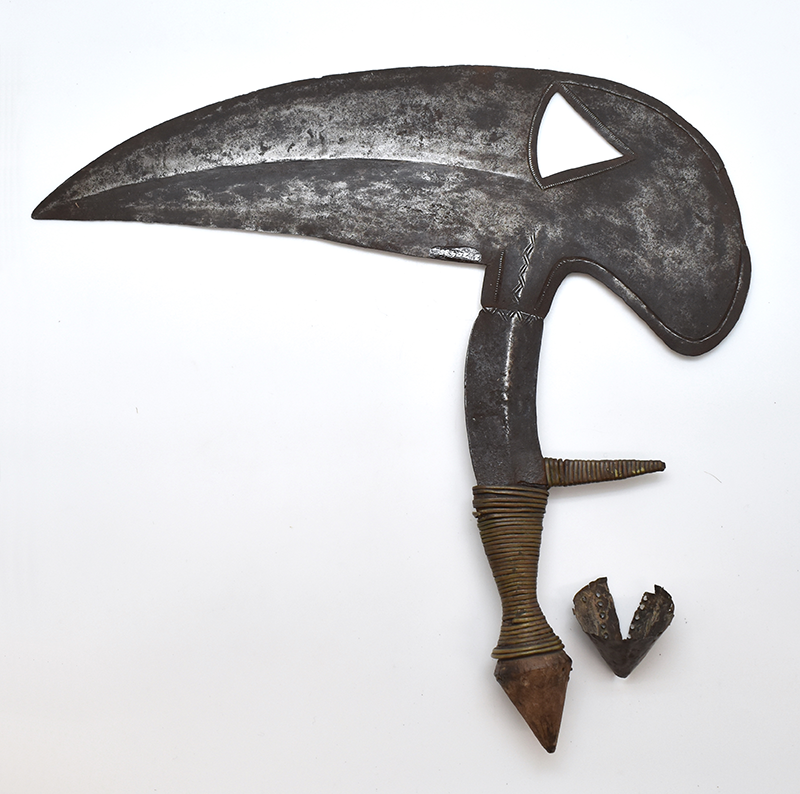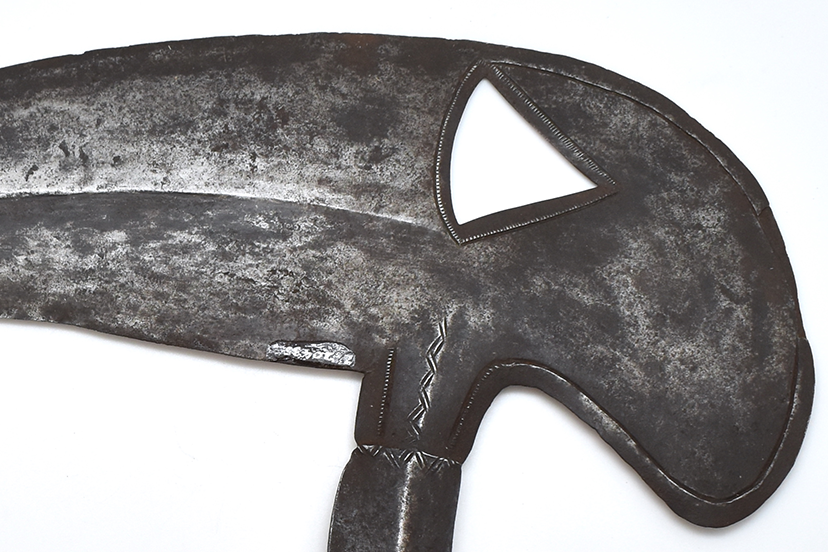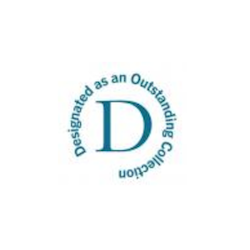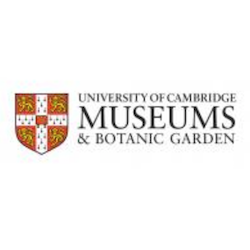
Onzil
19th century
Ghana
1887.64.9
"Identity, history and value are fragile things. This onzil, or throwing knife, was the first West African object entered into the Museum's registers, in 1885. It has since been crossed out, replaced, re-entered, lost, found and found again. Why has it had such a troubled journey? We still don't know."
- Mark Elliott
Misplaced Identities
Often in the museum we come across objects with no catalogue records, catalogue records with no objects, and sometimes objects with multiple records, identifying one thing as many things. Matching up 'missing' objects with those 'found' in the stores is a painstaking process, following clues and identifying gaps. When we succeed it is satisfying: a sense that we have done a little bit to reconnect things with their histories and identities. But it is also sobering: we are confronted with how fragile identities in museums can be.
This is an onzil: a throwing knife with a blade shaped after the hornbill bird, and associated with the Fang People of Gabon, West Africa. Its iconic form is seen in many museum collections of African material culture. But this onzil has had a confused and confusing museum career.
It may have been (almost) the first object from West Africa to enter MAA. It was written into the Museum's registers in 1885, crossed out, replaced with something else, re-entered in 1887 when it was partially confused with something else, then lost, or at least disconnected from its accession number and therefore, to all intents and purposes, its history and identity. In 1976 it was found, without a number, and allocated a new "Z" number. These were given to objects found during reorganisation, and whose identities were uncertain.
45 years later we unearthed it again, photographed it, and traced it through its history of entries, deletions, losses and rediscoveries to its purchase, by the Museum's first curator, from an unnamed London dealer in 1884. Its treatment seems careless. Was it considered a 'duplicate'? Because it was broken? What were our predecessors thinking? What does its treatment tell us about value, care, and the precarity of identity in the museum?
Explore these objects further:
https://collections.maa.cam.ac.uk/objects/535100/
Explore the full collections database:
https://collections.maa.cam.ac.uk
Mark Elliott - Senior Curator in Anthropology
Mark Elliott is curator with responsibility for the Asian, European and African ethnography collections.
He has carried out ethnographic research in India, and his research interests cover South and Southeast Asia, focusing on historical anthropology and collections history as well as the development of museum collections and museum practice.







